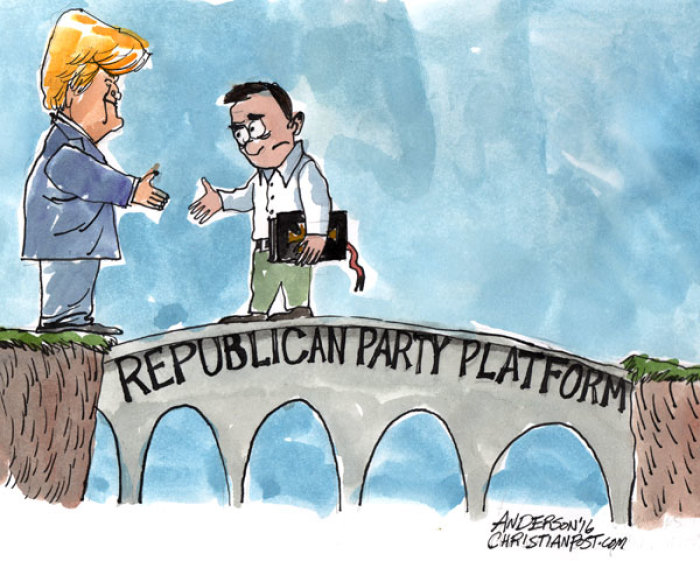Did 81 Percent of Evangelicals Really Vote for Trump? Not So Fast, Some Say

Much of the media is reporting that 81 percent of evangelicals voted for Trump, using exit polling data. Notable conservative evangelicals are challenging this statistic, contending the figure is somewhere between 35 and 45 percent, and many of them did so begrudgingly.
There are three problems with the "81 percent" figure, they say: 1) the number only includes white evangelicals, 2) the number doesn't account for participation, so one who self-identifies as an evangelical but never goes to church would be included, and 3) the number is only a portion of those who voted and doesn't account for the evangelicals who didn't vote.
"To clarify, 80% of white people who voted and call themselves 'evangelical' or 'born again' voted for Trump," said Eric Teetsel Wednesday in a Washington Post interview with Jennifer Rubin. Teetsel, who was Senator Marco Rubio's faith outreach director during the Republican primaries and has been a strong critic of Donald Trump, adding that those white people who call themselves evangelicals constitute a "sociological category more than a theological one."
"Consider that just 56% of voters who said they attend religious services 'weekly or more' voted for Trump," he noted.
Writing at The Gospel Coalition, Joe Carter, an adjunct professor of journalism at Virginia's Patrick Henry College, agrees. Despite all of the stories about such huge numbers of evangelical Christians pulling a lever for Trump, the exit polling data falls short on several fronts.
"This exit poll survey asked people to self-identify their religion from a range of choices," Carter said. "You could, for instance, choose to identify as evangelical on the survey — but only if you are white. If you're an evangelical of non-white race or ethnicity — Latino, black, Asian, and so on — your closest option was to identify as 'Protestant or other Christian.' As far as this exit poll is concerned, the label 'evangelical' is reserved for whites only."
Additionally, the mass media reporting on this fails to highlight several important factors because they are relying on a single Edison Research survey about voting patterns in the 2016 contest.
Moreover, no poll can measure what an "evangelical" actually is anymore, Carter added. Actual devotion to Christ cannot be measured by checking a box on a survey. And if American cultural Protestantism counts as "evangelical" and includes those who have not darkened the door of a church in many years, many inaccurate assumptions about what evangelicals really represent results.
"To the media, such distinctions may be unimportant. But if we are seeking a fair and accurate representation of actual evangelicals, it's important to distinguish them from those who do not truly subscribe to evangelical beliefs and practices," Carter said.
Yet articles excoriating evangelicals who voted for Trump from both Christians and non-Christians have been plentiful this past week.
"The Evangelical Church Has Lost Its Witness In Supporting Trump," declared a Huffington Post headline on Nov. 10. In a Tuesday Chicago Tribune column titled "After Trump, I Can't Relate To My Evangelical Faith," Patrick Kempert echoed that same theme, arguing that "with their embrace of Donald Trump, white evangelicals have lost all credibility, every last shred of it."
"Jesus said that the world at large would know his disciples by their love, but I see judgmental attitudes and hate where there should be empathy and compassion. I see little resemblance to the Savior we purport to serve," he continued.
But such sentiment is the result of woefully inadequate data, particularly when one considers that only 56.8 percent of eligible voters actually voted.
"Imagine there are only 100 self-professed white evangelicals in America. Based on the exit data we could say that out of those 100 only 57 voted in the election, and that out of those 57, only 46 (81 percent of 57) voted for Trump. Therefore, instead of saying 81 percent of white evangelicals voted for Trump, a more accurate claim would be that 46 percent of white evangelicals who were eligible to vote did so. In other words more evangelicals did not vote for Trump (or Clinton) than voted for him (or her)," Carter said.
"Before we opine on what evangelical voting behavior means, we should first make certain our claims are based on reasonably accurate assumptions about how evangelicals voted — or didn't vote," he concluded.





























